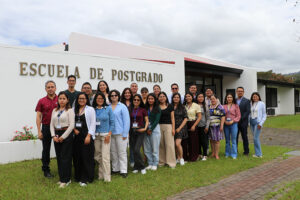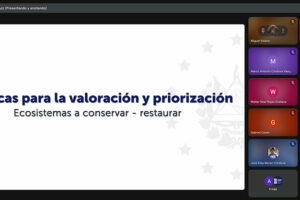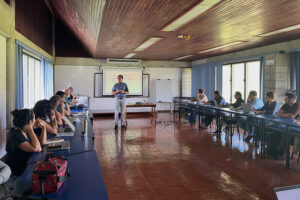CATIE present at the National Congress on Tropical Livestock and Climate Change
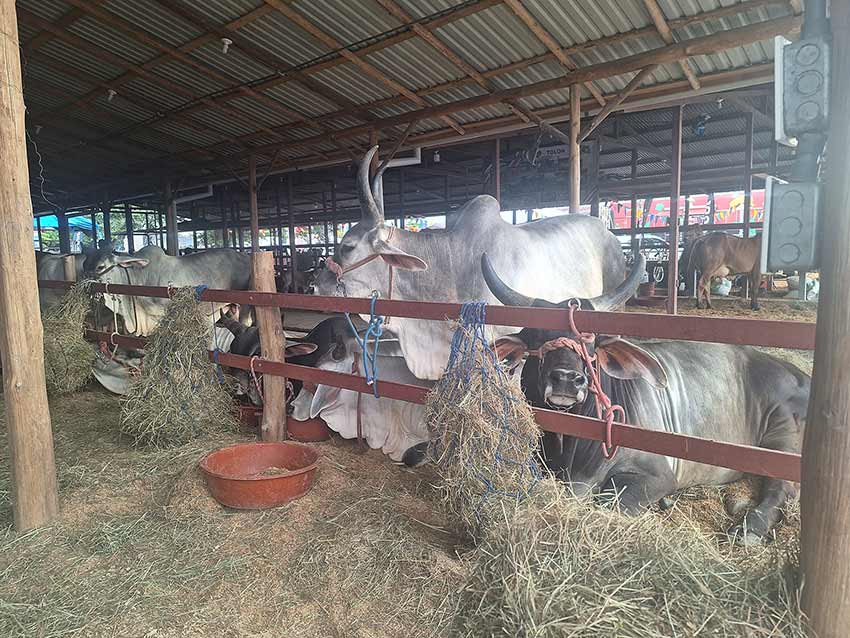
- Evelyn Chaves Jaén, from the Sustainable Agribusiness team, shared an analysis of the livestock sector titled “Strengthening to Compete: The New Role of Livestock Organizations in the Face of Sociopolitical, Climate, and Commercial Challenges.”
The Liberia Chamber of Cattle Ranchers, in collaboration with the Federation of Cattle Ranchers’ Chambers of Guanacaste (FCGG), held the National Livestock Congress on July 17 and 18 at the Liberia campus of the University of Costa Rica, with a special focus on perspectives for livestock farming in Guanacaste within the current context of climate change.
This edition of the congress emphasized the use of technologies to modernize and adapt livestock production to climate change, while also addressing key topics such as cattle feeding, genetic improvement, and good livestock practices.
The new role of livestock organizations
One of the key topics of discussion focused on strengthening the 11 organizations that make up the FCGG, where specialist Evelyn Chaves Jaén, from the Sustainable Agribusiness team, shared an organizational sector analysis titled “Strengthening to Compete: The New Role of Livestock Organizations in the Face of Sociopolitical, Climate, and Commercial Challenges.”
This presentation was based on a comparative analysis of leading livestock organizations in countries such as Brazil, Mexico, Colombia, Uruguay, the United States, and several in Europe. It highlighted that the strongest livestock organizations are characterized by offering three main services: (1) access to markets and effective commercial intermediation, (2) ongoing training and high-level technical assistance, and (3) active promotion of sustainability and animal welfare. They operate under highly structured governance systems, with clear democratic processes, formal audits, effective communication, and ongoing evaluation strategies.
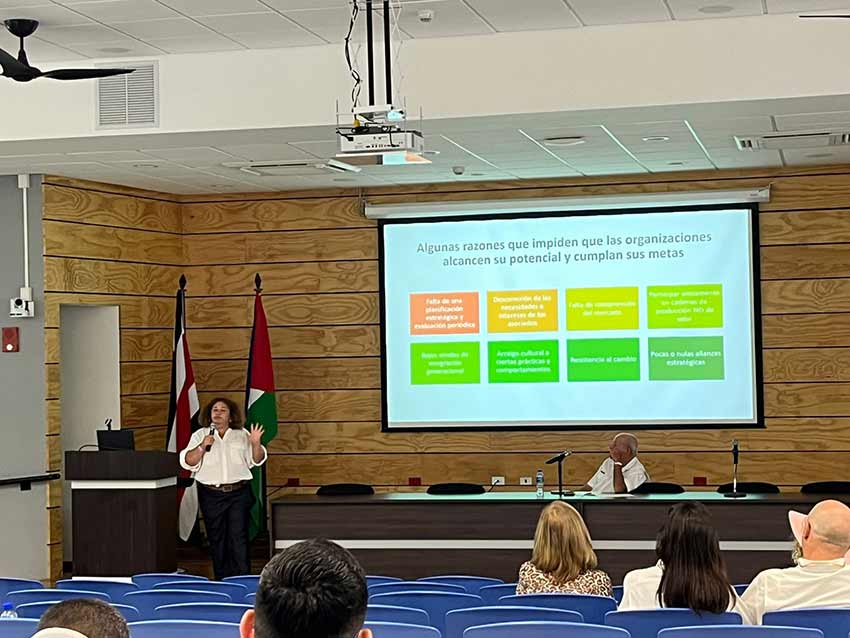
The key to their success lies in their ability to adapt, innovate, and remain focused on the value they provide to their members, working with a long-term vision and fostering collective leadership. This represents a learning and transformation opportunity for the livestock organizations of Guanacaste.
A regional strategy for resilient livestock farming
Guanacaste faces complex challenges associated with its climatic characteristics, which is why the FCGG has been working since 2023 on a strategy based on: improving feed availability for livestock, genetic improvement, use of technology and machinery adapted to the productive model, financial mechanisms, development of the local meat and dairy industry, and strengthening the member associations of the FCGG. This regional strategy is aligned with Costa Rica’s strategy for sustainable livestock farming.
Livestock organizations in Guanacaste show structural weaknesses that limit their ability to respond to new challenges, a situation that is not so different from what happens in agriculture across the country and, in general, around the world, such as:
- A traditional organizational culture that must adapt to a new context
- Low member participation in organizations
- Difficulties in adapting to current market conditions
- Extreme climatic conditions
- Regulatory changes
- Low investment in organizational development
Chaves states that, in her experience and opinion, the greatest challenge lies in “Transforming the mentality of being a 'rancher by tradition' into an 'entrepreneur by conviction,' promoting dignity and pride in the role of the producer, without neglecting any aspect of sustainability.”
Keys to strengthening the livestock sector
At the end of the presentation, several recommendations were provided to strengthen livestock organizations:
- Conduct member satisfaction analyses as a starting point
- Promote strategic alliances among the various actors in the Guanacaste livestock ecosystem
- Understand the different market segments where there is competitive potential and reorient production based on demand
Interest in a strategic alliance with CATIE
Luis Eduardo Arata, president of the FCGG, expressed the importance and need to continue conversations and collaboration with CATIE on this issue, in order to ensure the sustainability of all the efforts being made toward a competitive and renewed livestock sector.
The most relevant aspect in the end is that the Guanacaste livestock sector has all the potential to change its current situation. Its main resource is human capital, and there are young people and women interested in livestock farming who, together with more experienced individuals, can trigger creative processes to restore to Guanacaste a thriving and sustainable livestock sector, as evidenced by the final project of Javier Hernández, a student of CATIE’s virtual master’s program in Sustainable Agribusiness and Market Management , who developed his work analyzing the meat production chain of the Santa Cruz canton.
More information/written by:
Evelyn Chaves Jaén
Environmental Economics and Sustainable Agribusiness Unit
evelyn.chaves@catie.ac.cr

